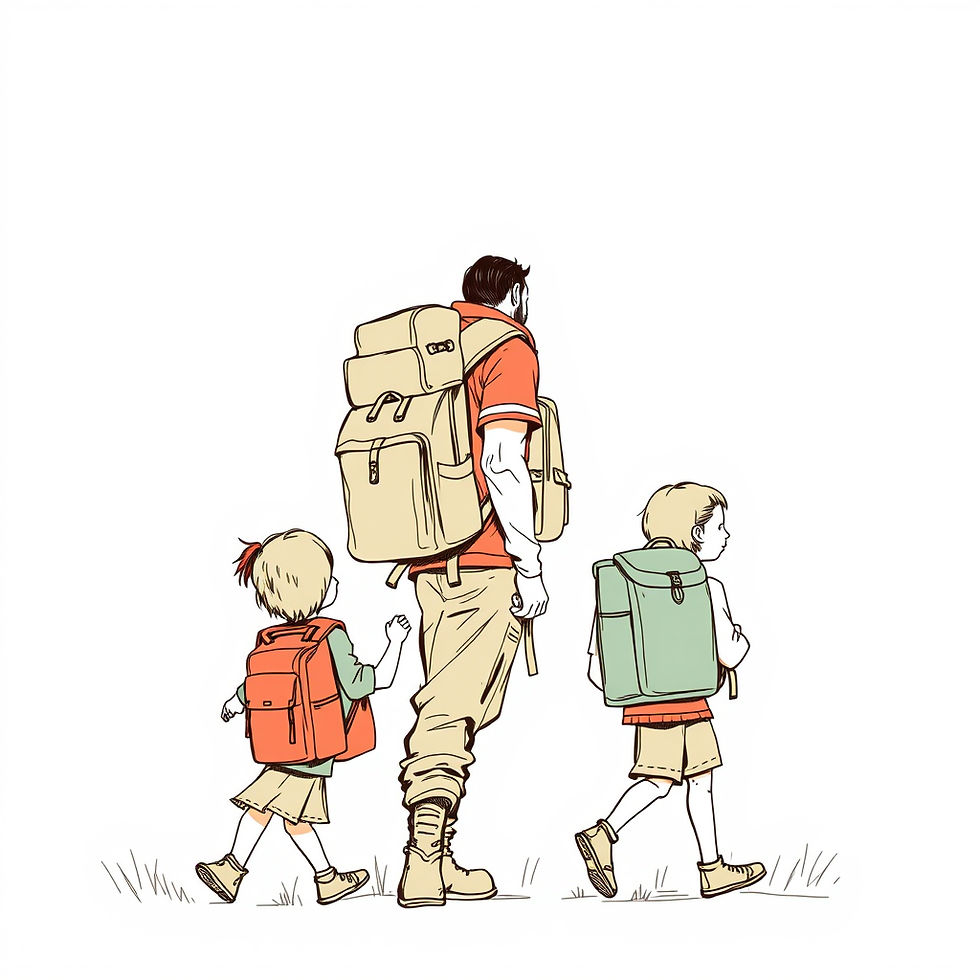From Ruins to Roots: My Journey of Resilience
- ALPA
- Aug 14, 2025
- 4 min read
by Hawa*
August 15, 2025

During the Republic, I lived in a central city of Afghanistan. Both my dad and mom worked on human rights issues, and my mother was a leading women's rights activist and successful entrepreneur 💪. Although we lived peacefully, their work wasn't safe, so we often had the fear and stress of moving from one city to another 😟. When the Taliban took over the country, we were in Bamyan Province, far from Kabul. We were stuck and didn’t know what to do. We couldn’t move immediately; we had to burn my mother and father’s documents to prevent the Taliban from finding them 🔥.
After a few days, we left Bamyan City for Kabul at 2:00 am 🌌. The road from Bamyan to Kabul was completely silent. I couldn't tell if people had left, died, or were hiding in their homes 🏚️. I could see only a few cars in the street and stains of blood where the war had left its recent marks 🩸. It was the scariest time of my life 😨. We reached Maidan Wardak as daylight started to appear 🌅. The city was also completely empty; I saw no one on the street. Only the recent traces of war were visible. Soon I saw with my own eyes that the army and the Taliban were firing rockets from one side of street to the other, right over our heads 💥. In even more terrifying parts of the street, you could see spilled blood. When I looked outside the car I saw an army officer's severed hand 💔.
We had thought that we would be able to leave Afghanistan from Kabul. But when we reached Kabul, we found that there was no way out 🚫. We had been on the evacuation list, but we reached the airport one day before the terrorist attack 💣. Hundreds of people had gathered there, a crowd that pushed and shoved and bit us and made it impossible to reach the gate, even before the bombing. Seeing no hope, we decided to return to the city.
Back in 2020, I had applied to Russian scholarships, because each year, Russia offered 350 scholarships for Afghans 🎓. I had been accepted to Saint Petersburg University. One of the requirements was to learn Russian, but during the COVID pandemic 😷, I hadn't been able to get a visa, travel, and start the language integration course at the university. Instead, I had been offered online courses 💻. Two months after Kabul fell, I got my visa. However, at that time the Taliban would not allow women to travel without male guardians (close male relatives) 🚷. My sister and I needed to find a way to get out of the country without one. With a group of students, we traveled from Kabul to Herat by car, and in the early morning the next day, we headed to Mashhad, Iran. We had a couple among us, and at the border they introduced us as their cousins.
From Kabul to Mashhad, the only thing I did was cry 😢. I kept remembering how my mother had run after the car as we drove away. It killed something in me that could never be healed 💔. I felt nothing about the future—only that I would never see my parents again.
I lived for two years in Russia. During my time in Afghanistan, I had been a girl who never touched “black or white”—meaning I was the apple of my family's eye, spoiled with love and care 💖. But this was a new chapter. Suddenly I didn’t know what to eat, what to wear, what to do, and I no longer had my sister or mother to ask. Russia was the first foreign country I had traveled to alone, and I quickly realized that life there was not what I expected 🌨️. Refugees and students couldn’t integrate, discrimination was common, and there were no job opportunities for foreigners. Women wearing hijab faced even more barriers 🧕.
Unfortunately, I had a discriminatory professor who mocked Afghanistan in class and failed me twice without reason 📉. Knowing a third failure meant expulsion, I took an academic leave and began planning to escape to Europe. My options were limited because I lived in a country under sanctions. Eventually, I decided to take the riskier way—crossing into Germany on foot. For almost two weeks I had no food, no shelter, no safety, and no connection to the world 🏞️.
In June 2023, I arrived in Germany 🇩🇪. I claimed asylum, moved between three camps in one month, and finally entered a “Heim” (shared housing). Within eight months, I received my residency permit, began integration courses, and started looking for a university to transfer to 📚. Germany is not perfect, but here I found freedom, opportunity, and dignity 🌈. Racism exists, but it’s far less than in Russia, and many people have been kind and welcoming.
Germany feels like my second home 🏡. I am grateful to live, learn, and grow here, side by side with people from many backgrounds 🤝. We are not so different—just humans with different languages, cultures, and stories ❤️.
-------------------------------------------------------------------------------------------------------------------------------
* it is a pseudonym.




Comments